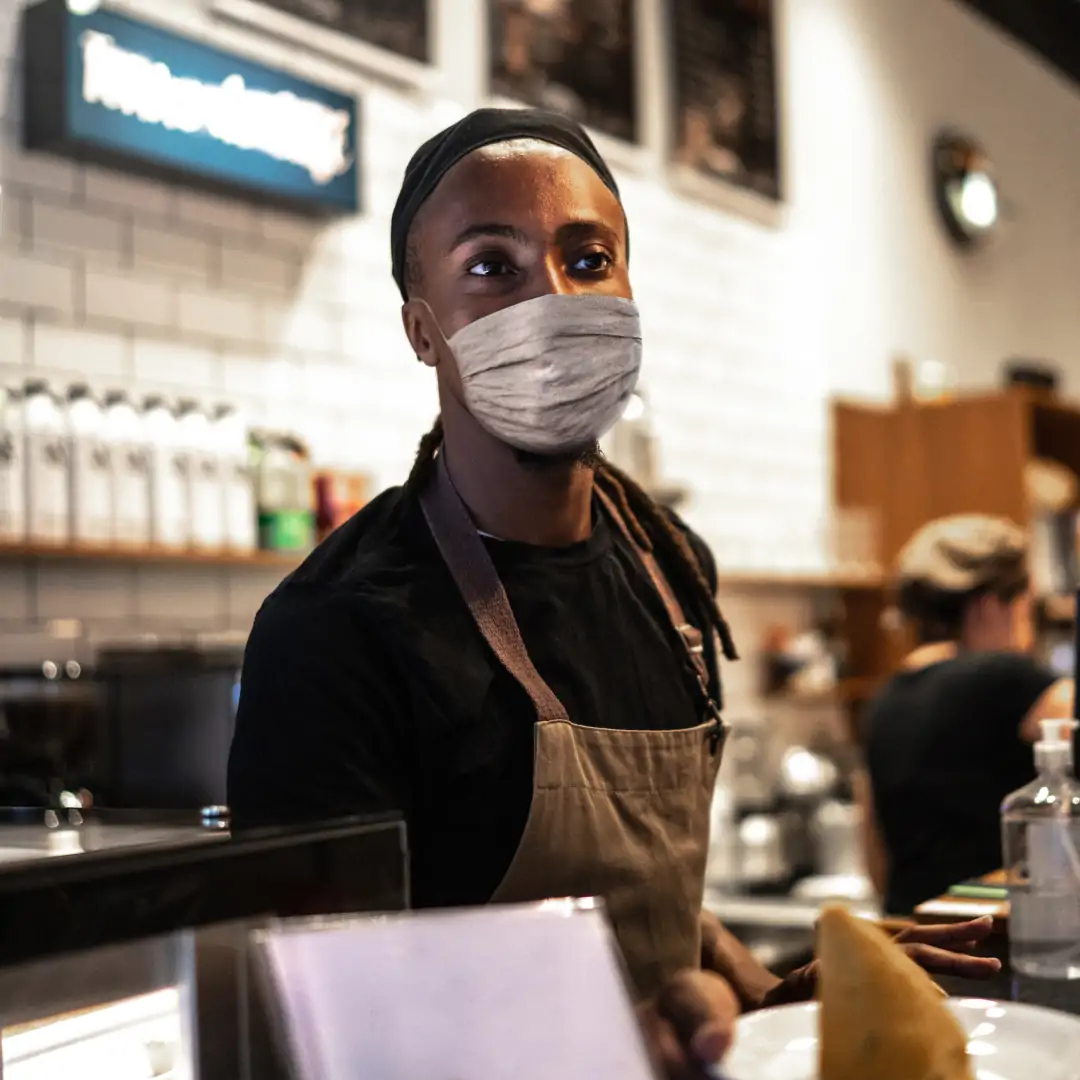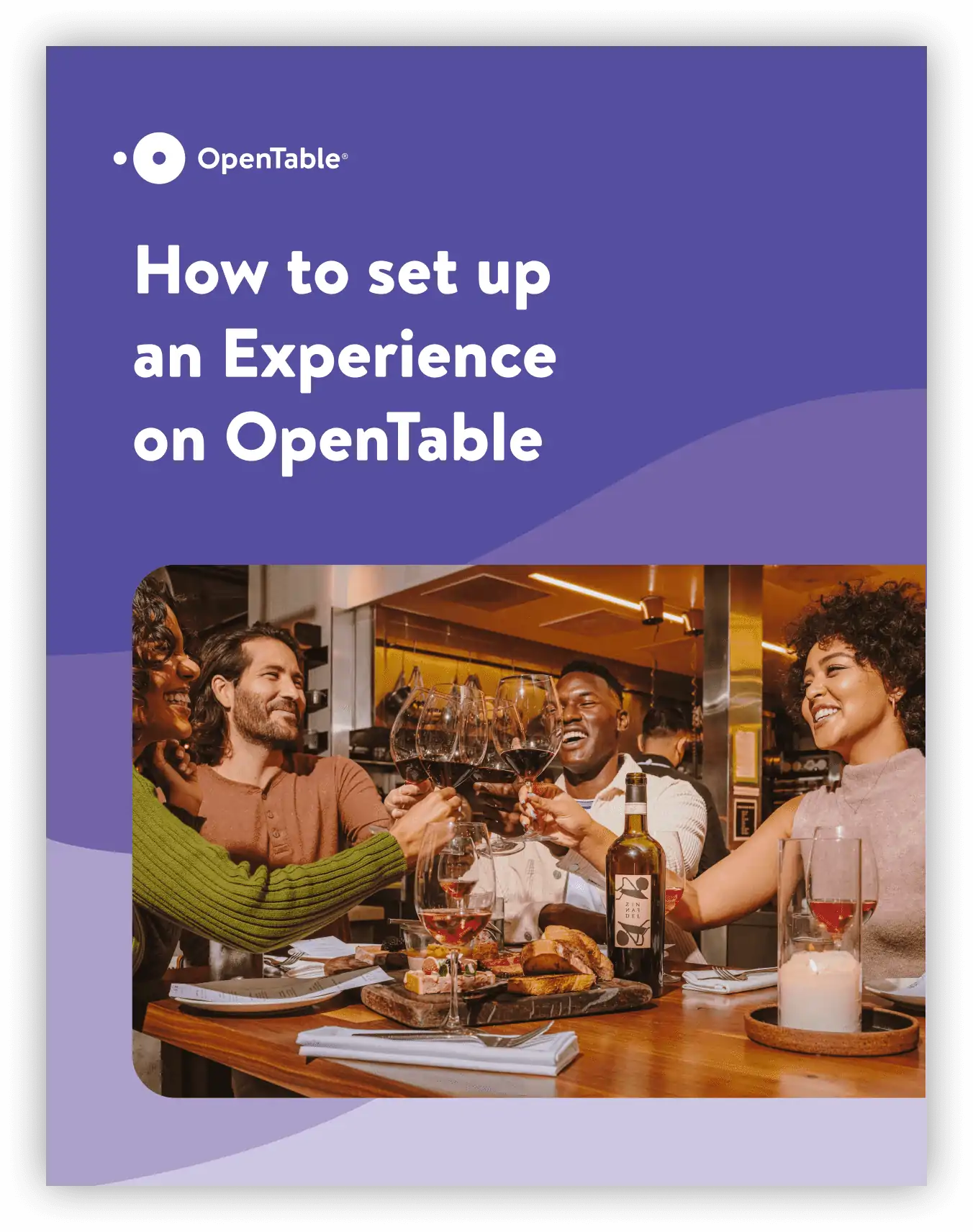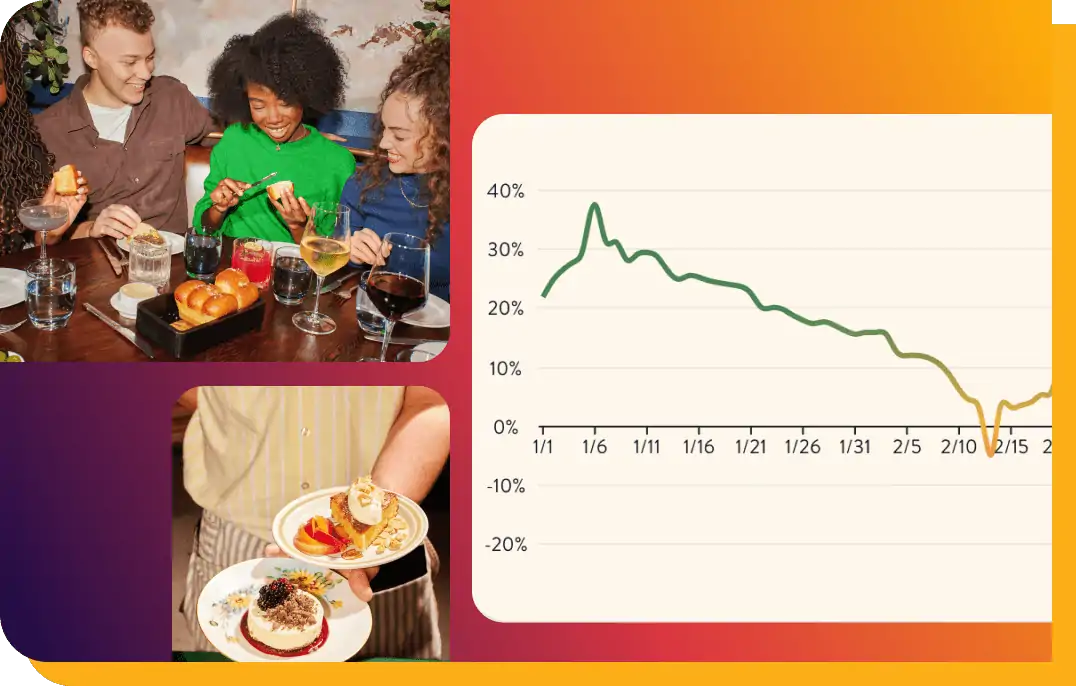The coronavirus COVID-19 has caused gatherings of all kinds to be postponed or cancelled, employees to take sick days, and many healthy customers to stay home. Needless to say, the effects of this crisis on restaurants have been swift and challenging. We reached out to a variety of experts to glean strategies for dealing with the ever-changing situation, from business and marketing to safety and crisis management.
First things first: communicate your plans
1. Reach out to guests
“Restaurants in areas where either actual cases or substantial fear of cases may want to let at least regular customers know what they are doing. Generally, reaching out to people with whom you already have a relationship with a brief, sincere, and honest message may be a good idea.
- Your message should be brief and include:
Whose direction you are following (e.g., ‘We are following the direction from the county health department.’) - What steps you have taken/are taking (e.g., ‘We have placed additional hand sanitizer stations at all entrances and other locations. Please use them. We also are suspending our buffet services until further notice.’ Or ‘We have increased our use of disinfectants and are thoroughly cleaning all surfaces multiple times each day.’)
- Consider informing customers about your employee sick leave policy. One of the biggest concerns has to do with kitchen or other staff coming to work when they may be sick.
- Tell customers, ‘Please don’t come here if you feel sick or may have been exposed to the virus.’
- Where to go for more information (e.g., link to the county health department or CDC, as appropriate—a local authority is better for this purpose) or who to contact with questions.”
— Douglas Levy, Doug Levy Communications and author of The Communications Handbook for Coronavirus and Other Public Health Emergencies
2. Prepare staff
“Communications about what might be coming are key. Being transparent is always a good idea.”
— John Shunk and Michelle Harden, Partners, Messner Reeves LLP
3. Inform and stay positive
“We’re doing marketing with the most positive and upbeat aspects that we can put out there.”
— Pete Sittnick, Managing Partner, Epic Steak and Waterbar
Next up: minimize impact
4. Increase sanitation
“A lot of our clients have hand sanitizer at the door and maybe in the restroom. We recommend increasing mandatory hand washing to twice an hour rather than once per hour. Toilets, handles, and counters should all be cleaned more thoroughly. Any surfaces employees and customers will be touching need frequent cleaning.”
— John Shunk and Michelle Harden
5. Make space
“We will be eliminating half of our dining tables to allow for a minimum of six feet per table. We have a full-time sanitation position that is cleaning the restaurant and all touched surfaces constantly throughout the evening.”
— Josh Weeks, General Manager and Co-owner, The Plumed Horse
6. Do a wellness check
“We have always encouraged clients to have the manager on duty do a wellness check to ask employees: ‘How are you feeling? Do you or anyone you live with have the symptoms?’ We are trying to have employers encourage employees to call rather than come in if they aren’t feeling well.”
— John Shunk and Michelle Harden
7. Have sick employees stay home
“Tell everyone the importance of staying home if they are home and feel sick, and what to do if they are at work and feel sick. It’s really important that someone who feels sick knows to stay away from other people—you don’t want them walking up to the chef to tell them. Think through how you will handle a guest who walks in sweating and febrile.”
— Douglas Levy
8. Remind sick guests to stay home, too
“Think about a direct sign in the restaurant—on the website, phone recording—that says, ‘If you traveled to high-risk regions or are experiencing symptoms please consider joining us another time.’”
— John Shunk and Michelle Harden
9. Confirm reservations
OpenTable can automatically confirm reservations with diners to help reduce cancellations and no shows. Keep track of your cancellations through the Reservations report in OpenTable by setting the status to “Cancellations.”
You can customize and resend booking confirmation emails to stay in touch, reassure, and set expectations with your guests. Diners may be worried, so remind them of all the precautions you are taking to keep your staff and guests healthy in keeping your restaurant clean.
– OpenTable team
Finally: prepare to your best ability
10. Limit spending
“From a purchasing standpoint, it’s buying strictly what we need to operate the restaurant and not being superfluous. Capital expenses are being put on hold.”
— Pete Sittnick
11. Offer new items for takeout
“Our guests are excited we’re offering takeout and that we’ve taken steps to ensure they can bring the atmosphere of our restaurant home. We started adding fresh cookies to each takeout order and our guests loved them so much that we decided to add milk and cookies to our menu.”
— Jeff Howard, Hospitality and Operations Development at Tempus
12. Think local
“Restaurants should be leaning into local guests, whether it be for in-house meals, takeout, or delivery. Social media is a great place to promote these options, especially for spots that traditionally do little or no business in this area. As the crisis abates, have short-term and long-term strategies in place: locals’ nights, restaurant weeks, staycation rates, concept-appropriate promotions (use your agency or marketing team to get on this right now).”
— Andrew Freeman and Amy Cleary




